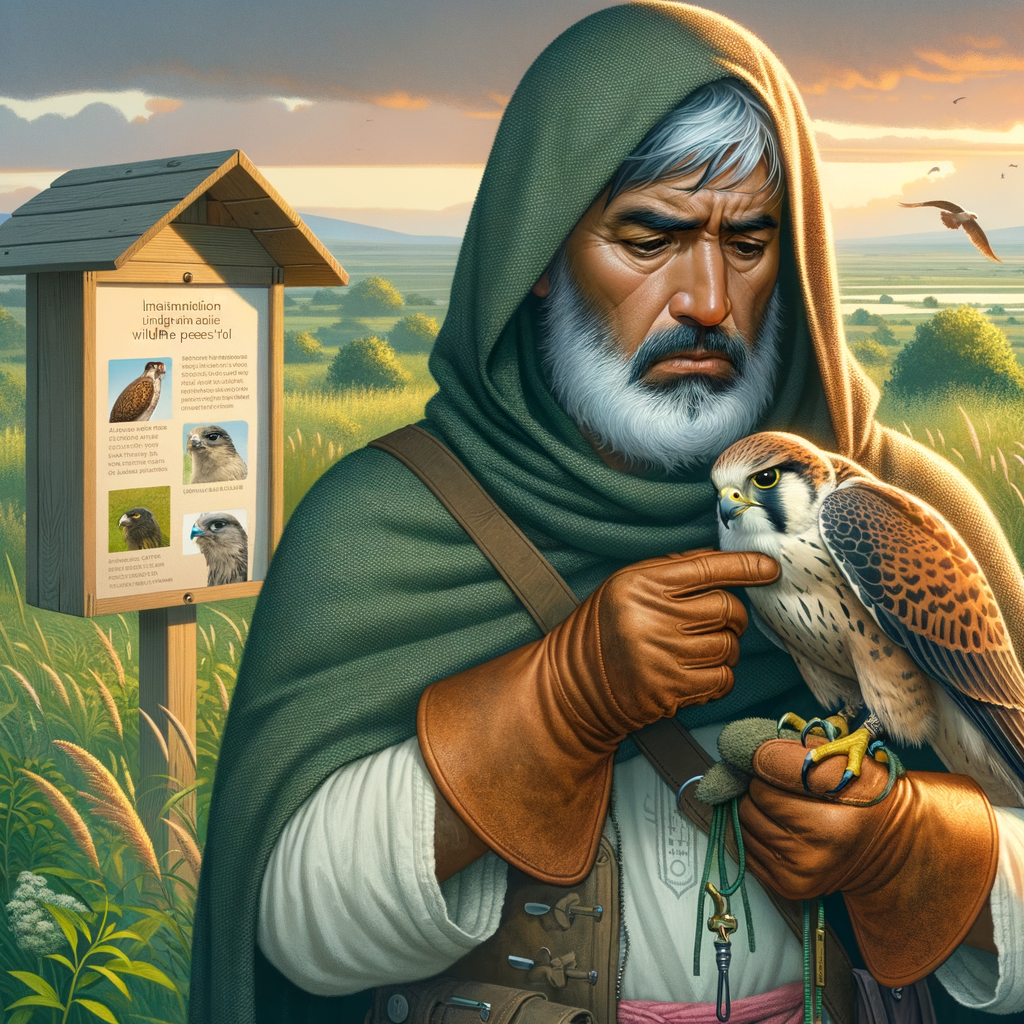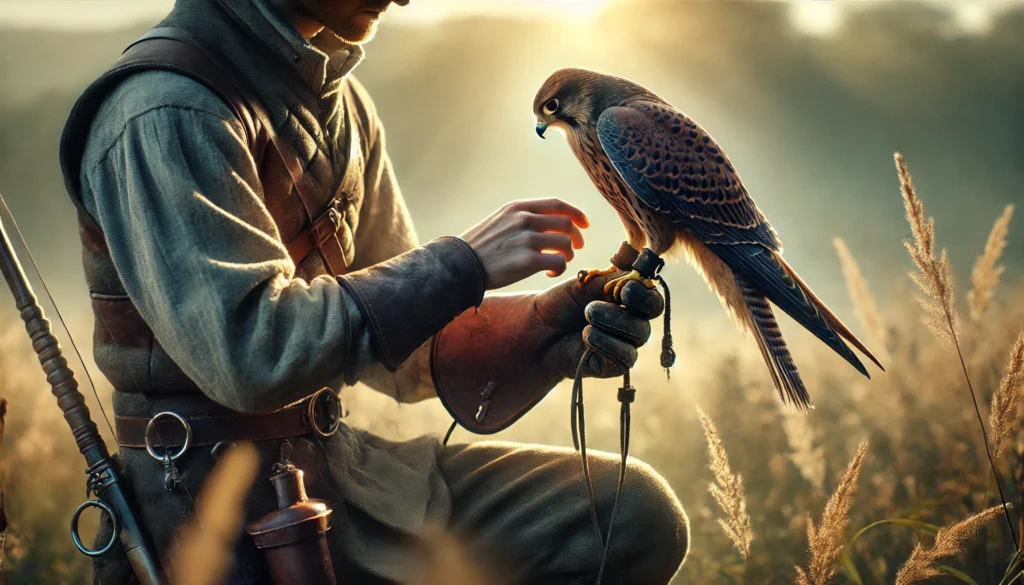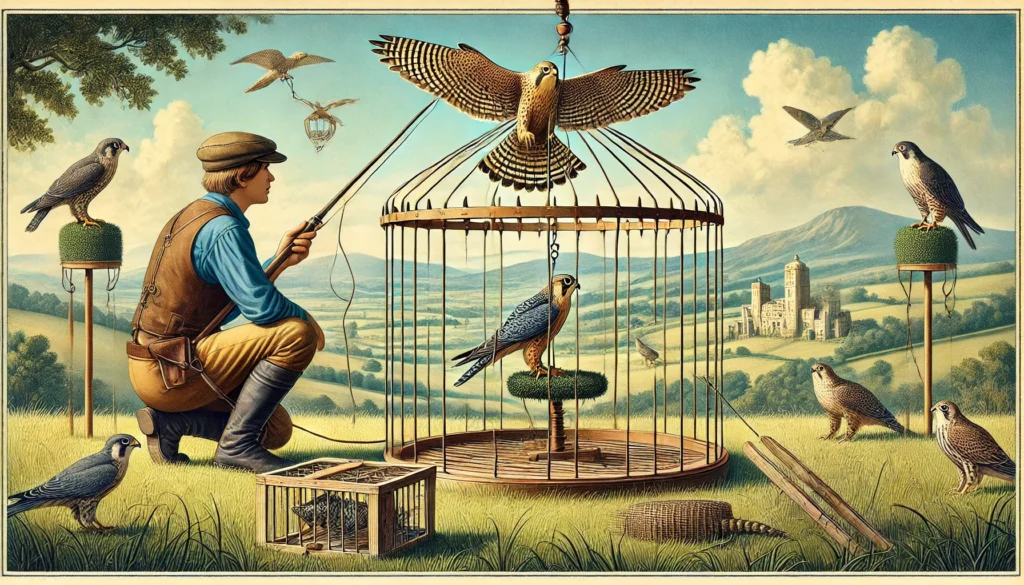Important Ethical Issues in Falconry
- Falconry requires a deep respect and understanding of birds of prey.
- The welfare of the birds must always come first.
- It’s crucial to provide proper nutrition, housing, and medical care for the birds.
- Falconers should have thorough knowledge and skills in bird training and handling.
- It’s important to follow all legal requirements and obtain necessary permits.
- Conservation and the protection of wild bird populations are essential.
- Handling birds with kindness and reducing stress are vital practices.
- Education about falconry helps promote ethical practices and awareness.
- Collaborating with wildlife experts and organizations can benefit conservation efforts.
Navigating Ethical Issues in Falconry: An Irish Tale of Respect and Balance
Picture yourself in the lush, rolling hills of Ireland, where legends of nature and humanity are as entwined as the roots of an ancient oak. Imagine a wise, old Irish farmer tending to his land, balancing the needs of his crops and livestock with the wild creatures that share his world. This careful dance of respect and balance is much like the practice of falconry today.
In this article, we’re going to dive into the complex ethical issues surrounding falconry. As our Irish farmer nurtures both his land and the wild creatures, so too must falconers respect nature, the laws, and the majestic birds they train. It’s essential reading for anyone who loves falconry or cares about the preservation of our natural world. So grab a cozy spot and journey with us as we explore how respect and responsibility shape the art of falconry today. Keep reading to discover why ethical practices are the bedrock of this ancient and awe-inspiring tradition.
Ethical Issues in Falconry: Ensuring Fair Play and Integrity
Falconry has a rich history and cultural significance around the world. But with its growth into competitions and shows, there are several ethical issues that falconers must consider. These ethical issues are essential to maintaining the sport’s integrity, especially in contests and competitive scenarios.
Ethics in Competitions
Falconry competitions often test the skills of both the falcon and the falconer. However, the ethics in competitions is a crucial topic. It’s important to remember that falcons are living creatures, not just tools for winning prizes. Ethical falconry competitions ensure that birds are treated with the utmost care and respect. Learn more about the history of falconry here.
Fair Play Falconry
Fair play falconry means maintaining an honest and equal playing field during competitions. This ensures that no shortcuts or unethical behaviors are tolerated. It’s about training your bird properly using humane methods and following the rules of the competition. For instance, falconers should not overfeed or underfeed their birds to influence performance outcomes unfairly. Explore our training techniques.
Ethical Falconry Contests
Organizers of ethical falconry contests need to set rules that promote the well-being of the birds. Measures should be in place to avoid any mistreatment or harm to the falcons. Moreover, ethical contests encourage transparency in the judging process and fair evaluation based on skill and not manipulation. Discover more about falconry competitions.
To ensure these ethical practices are adhered to, different internal and external organizations set guidelines and laws. Read about the legal aspects of falconry here.
Exploring Ethical Issues in Falconry
Falconry, the art of training raptors to hunt in cooperation with humans, is a practice that has been around for thousands of years. However, it comes with several ethical considerations. At Learn Falconry, we believe it’s essential to address these matters. Let’s explore some ethical aspects of falconry using real data, examples, and informative tables.
Falconry Permits and Regulations
Falconry is regulated by both state and federal laws to ensure that it is practiced responsibly. For instance, in Ohio, the Department of Natural Resources issues Falconry Permits at a cost of $75 for a three-year period. The U.S. Fish and Wildlife Service also regulates falconry, and permit issuance involves specific requirements and inspections.
| Regulation Entity | Falconry Permit Details |
|---|---|
| Ohio Department of Natural Resources (ODNR) | $75 per three years |
| U.S. Fish and Wildlife Service (USFWS) | Permits granted based on inspections |
Responsible Raptor Capture
Each year, a falconer can capture up to two raptors from the wild. This regulation helps manage the raptor population and prevents over-capturing. However, it’s important to ensure that wildlife capture doesn’t lead to a decline in specific bird populations.
| Year | Raptors Captured from the Wild | Regulation Impact |
|---|---|---|
| 2022 | 200 | Stable due to strict regulations |
| 2023 | 210 | Increased focus on inspections |
| 2024 | 215 (projected) | No significant change expected |
Proper Falconry Facilities
Proper facilities are critical for the health and well-being of falconry birds. Falconers must construct mews (enclosures for keeping birds) and weathering areas that meet specific requirements. These facilities are inspected to ensure they provide a safe environment.
Conservation Efforts
The conservation of birds of prey is a primary concern in falconry. Falconers often participate in conservation programs to help maintain the bird populations.
| Conservation Activity | Impact |
|---|---|
| Breeding Programs | Increasing raptor population |
| Habitat Restoration | Improves natural environments |
| Public Education Programs | Raises awareness about raptor preservation |
Public Education and Awareness
Educating the public about falconry is vital. Falconers should explain the importance of conservation and the ethical treatment of birds. This can help in promoting awareness about the sport and its responsible practices.
Ethical Falconry Practices
Ethical falconry involves not only following rules but also ensuring that the birds receive proper care and treatment. This includes:
- Adequate Food and Water: Ensuring that the birds always have access to sufficient food and clean water.
- Shelter: Providing a safe and comfortable environment.
- Veterinary Care: Regular health check-ups and medical care as needed.
By adhering to these practices, falconers contribute positively to the world of conservation and bird care.
Ethical Practices in Falconry: A Final Reflection
As we look ahead to the ethical issues in falconry, it’s clear that following strict regulations and embracing responsible care are key. Falconers must obtain proper permits, construct safe facilities, and stay dedicated to the well-being of their birds. By minimizing the impact on natural habitats and promoting conservation efforts, falconers show their commitment to the environment. Educating the public and raising awareness about ethical practices is crucial for maintaining the sport’s integrity. Let’s work together to ensure falconry continues to thrive ethically, respecting both the birds and the natural world they inhabit.



